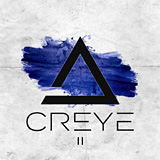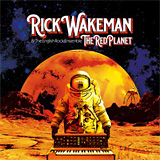 Noch eine Band, die mir bei Streifzügen durch die Galaxien des Internet über den Weg gelaufen ist und die ich bisher noch nicht einmal dem Namen nach kannte.
Noch eine Band, die mir bei Streifzügen durch die Galaxien des Internet über den Weg gelaufen ist und die ich bisher noch nicht einmal dem Namen nach kannte.
Gegründet wurde die Band 2009 von einer (damals) sehr jungen Frau namens Taylor Momsen. Obwohl: mit 16 oder 17 Jahren ist man eigentlich ja noch ein Teenager. Besagte Miss Momson hatte davor musikalisch bereits ein wenig im Pop-Bereich mitgemischt und sammelte erste Meriten als Schauspielerin (eigentlich Teenie-Star) in einer TV-Serie namens “Gossip Girl”. Ob man die kennen muss, weiß ich nicht, aber sie scheint wohl recht erfolgreich gewesen zu sein.
Wie auch immer, die junge Frau besann sich dann wohl darauf, dass ihre Karriere noch andere Wege abzweigen könnte und gründete eine Band, in der derzeit nur noch sie selbst als Gründungsmitglied zu verzeichnen ist.
Geboten wird auf dem Album eine Mixtur, die man gerne mal als “alternative Rock” im Stile der 1990er Jahre bezeichnet. Also im Grunde eine Art von Blues-Fundament, auf dem man ein AOR-Haus hochzieht. Dabei wird auch gerne mal mit für das Genre etwas untypischen Klängen experimentiert (Kinderchor bei “And So It Went” oder leicht arabesk anmutende Einsprengsel bei “Turning Gold”.
Und da die (relativ tiefe und manchmal auch leicht rauchige) Stimme von Taylor Momsen wirklich zu gefallen vermag, wird das Werk zu einer runden und recht abwechslungsreichen Sache, bei der auch mal die eine oder andere Powerballade (“25”) nicht fehlen darf. Allerdings sollte man es mit den balladesken Parts nicht übertreiben, “I Got So High” ist für mich ein relativ schwacher Song.
Insgesamt ist es jedoch ein sehr ordentliches bis richtig gutes “alternative-Rock-Album”, welches man immer mal wieder hören kann, das aber nicht unbedingt zu den Himalaya-Gipfeln des Genres gehört.
 Von Zeit zu Zeit stöbere ich ganz gerne bei Bandcamp herum auf der Suche nach Künstlern und Bands, die ich bisher absolut nicht kannte. Und da treffe ich dann manchmal auf vollkommen unerwartete Dinge, bei denen meine Ohren bereits nach 1 - 2 Songs spitzer sind als die eines gewissen Vulkaniers.
Von Zeit zu Zeit stöbere ich ganz gerne bei Bandcamp herum auf der Suche nach Künstlern und Bands, die ich bisher absolut nicht kannte. Und da treffe ich dann manchmal auf vollkommen unerwartete Dinge, bei denen meine Ohren bereits nach 1 - 2 Songs spitzer sind als die eines gewissen Vulkaniers.
 Nachdem Rick Wakeman in den letzten Jahren bereits mit den erweiterten Neuauflagen von “
Nachdem Rick Wakeman in den letzten Jahren bereits mit den erweiterten Neuauflagen von “ Während die Label-Kollegen von
Während die Label-Kollegen von